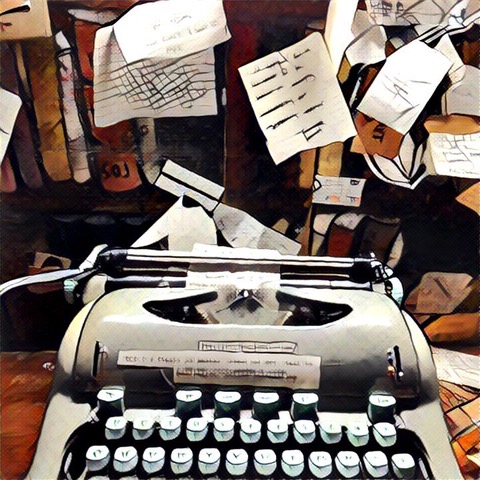10 Ways to Enhance Your Fiction Writing through Journaling
Today’s guest post is by Lisa Tener.
As a writer, you’ve probably kept a journal at some point. Maybe you still do. Our journals can provide powerful personal insights, contribute to our emotional and spiritual growth, improve our relationships, and so much more.
But are you tapping into the full potential of this process to generate ideas for your creative work?
Exploration of your ideas through the freewriting aspect of journaling can infuse fresh energy into your fiction projects, it can enable you to delve deeper into chosen topics and resolve outstanding plot issues, choices, and challenges for your characters.
10 Creative Ways to Tap Your Journal for Your Fiction
- Generate and Explore New Ideas: A journal is, by its nature, a place to feel free to brainstorm and explore ideas. You may journal with the intention of coming up with a new project, but you may also review old journals to see what new ideas emerge. Once you identify the premise and main characters of a fiction project, you can continue to explore the story in your private journal before committing to it on an actual file on your computer or phone.
- Get to Know Your Characters: Interview fictional characters in your journal. Or take on their persona, and write in your journal as if you were the character. What does she care most about? What voice does she use when she journals, versus how she speaks with others? Does that private internal monologue inform her voice as a narrator or in dialogue?
- Support Your Writing Habit: We know, theoretically, that writing every day makes us better writers, more productive writers, and helps us complete our work. But do you work on your manuscript daily? If not, journaling could be your key. Upon waking, jot down everything that comes to mind in relation to your fictional work-in-progress. Our mind is much less critical before we are fully awake, which allows for greater freedom in creative exploration.
- Solve a Problem: Explore challenges in your novel or short story. Journal about the plot problem or the flat character. With a character you find challenging to write, you might explore any internal resistance you feel, or question why you’re holding back with this specific person. Do they reveal something about yourself that you would rather not see? Do they remind you of someone you’ve had difficulties with in the past?
- Experiment: Get creative in your journal and try forms you might have assumed were too challenging. Or outside your comfort zone. A journaled poem may spark ideas or find its way into your character’s journal or even influence the voice of your narrator. Whether you utilize them directly or not, your journal experiments will certainly impact your fiction.
- Mine Your Dreams: Upon waking, while still enveloped by that veil of dissipating sleep, see if you can recall your dreams, and then jot down all the details you can recover in your journal. By connecting with your dreams, you can then work on your novel or short story and write from that numinous space where dreams incubate. You may experience more ease and a stronger sense of flow. You can also ask your subconscious—or write a note in your journal (or place a note under your pillow)—for a dream that helps you resolve an outstanding issue or challenge with your story. Or ask for dreams that will provide new insights into your work. It may take a few nights of asking before the connection becomes clear. Often, more details emerge as you journal.
- Root through Old Journals: Does your narrator visit Bangkok in the 1990s? Did you visit Bangkok then as well? Go back to your old journals for descriptions of the Buddhist temples, lush city gardens, and the crazy discos you visited. Does your character experience a health challenge that you went through in college? Search those college journals, if you have them, for descriptions of the experience. In fiction we are free to imagine unlived experiences and people seemingly unrelated to ourselves, but we should also feel free to work from what we know.
- Capture Dialogue: Keep your journal with you throughout the day and take notes whenever you overhear a colorful snippet of conversation. It may be fodder for dialogue later. What you hear may even spawn a new character.
- Take a Detour: Creativity flourishes when we take a break from our larger project and do some other seemingly unrelated creative work via journaling. You never know how journaling will influence your fiction—it may open up a space or solve a nagging question with the plot, it may spark some vivid metaphors, it may even provide you with a new way of looking at the key conflicts of your story.
- Create Inner Space: I have great news for you. By simply journaling your encounters, thoughts and emotions, you will inevitably generate enough momentum to avoid the dreaded feeling of writer’s block. You will develop a habit of productivity. You don’t need to journal specifically about your creative writing project, but you certainly can. Either way, once you make journaling a daily practice, your fiction will surely improve in the most gratifying and surprising ways.
 Lisa Tener is an award-winning book coach, creativity catalyst and author of the book The Joy of Writing Journal: Spark Your Creativity in 8 Minutes a Day. Lisa has helped thousands of aspiring writers and authors access their creativity, find their voice and write and publish groundbreaking nonfiction books through her coaching services and courses.
Lisa Tener is an award-winning book coach, creativity catalyst and author of the book The Joy of Writing Journal: Spark Your Creativity in 8 Minutes a Day. Lisa has helped thousands of aspiring writers and authors access their creativity, find their voice and write and publish groundbreaking nonfiction books through her coaching services and courses.
Check out Lisa’s The Joy of Writing Journal: Spark Your Creativity in 8 Minutes a Day. By guiding you through easy daily writing exercises, The Joy of Writing Journal can help you to finally sit down and do the writing that has been calling to you. Lisa offers private coaching and award-winning nonfiction writing courses at LisaTener.com. Follow Lisa on Twitter, Instagram or join her private Facebook Group (Write and Create with Lisa Tener).
Featured Photo by Prophsee Journals on Unsplash










I am a definite fan of journaling and free writing. Your list of benefits is great. I am especially fond of #4.
http://www.writeradvice.com
Thanks much for digging deeper and writing them down. Even if not a novel but is very helpful in other areas storytelling. Accept my wishes.
Narayan x